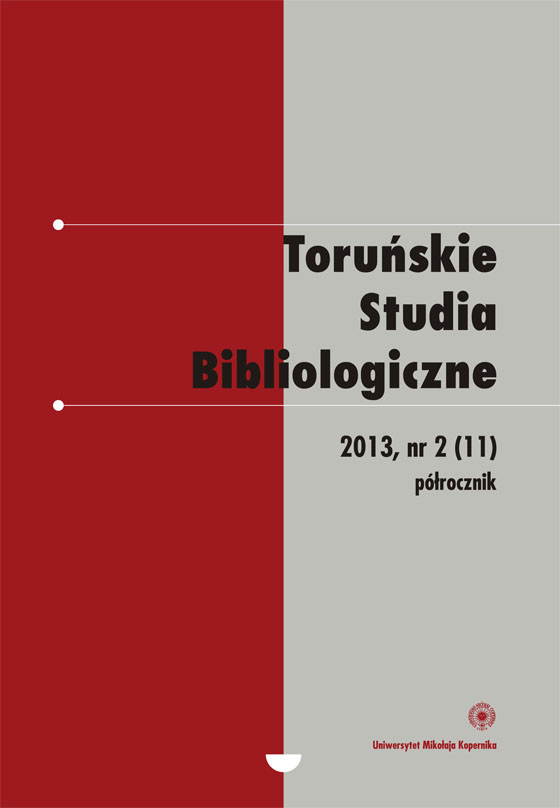Wpływ cenzury na recepcję twórczości literackiej Leszka Dunina Borkowskiego
Impact of censorship on reception of Leszek Dunin Borkowski’s literary creation
Author(s): Tadeusz PółchłopekSubject(s): Cultural Essay, Political Essay, Societal Essay
Published by: Wydawnictwo Naukowe Uniwersytetu Mikołaja Kopernika
Keywords: Dunin Borkowski Leszek (1811−1896); cenzura; Galicja; Lwów; recepcja twórczości; censorship; Galicia; Lviv; reception of literary creation
Summary/Abstract: The assumption that censorship would effectively maintain the Austrian Empire in the state of political apathy was false in its very nature. These restrictions not only did not insure but also humiliate the government, being an inspiration to numerous supporters of the freedom of speech. Beyond the borders of monarchy, the naive and unbearable system was mocked at and any fact of its violation was eagerly greeted. In these conditions young writers from Lviv, with Leszek Dunin Borkowski in the lead, shattered the political fundaments of monarchy to such an extent that in 1848 censorship was abolished for a short time. This time of freedom enabled publishing of many manuscripts but it did not influence the cultural and literary bloom in Galicia. The next years after restoring censorship entirely stopped the activity of the romantic writers who abandoned their work or became editors of the pro-government newspapers.
Journal: Toruńskie Studia Bibliologiczne
- Issue Year: 11/2013
- Issue No: 2
- Page Range: 99-119
- Page Count: 21
- Language: Polish

